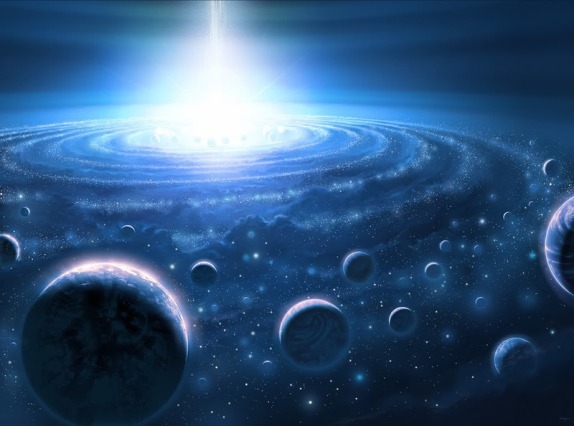بسم
الله الرحمن الرحيم
What
distinguishes Islam from the false religions of the world is the
doctrine of the creation of the world. The Baha’i cult, for
example, teaches: “Bahá’u’lláh says, The universe hath
neither beginning nor ending.” (The Promulgation of Universal Peace)
Thus, not only does the Baha’i
cult deny the creation and origin of the universe, it likewise denies
its end and destruction. The belief in the eternality of the universe
is associated with the falsehood of Platonic and Aristotelian
philosophy. It is repudiated in the Scriptures and the teachings of
the Prophets of God. The first verse of the Torah says: “In the
beginning God created the heaven and the earth” (Genesis 1:1). The
holy Quran states repeatedly that Allah is the Creator of Heaven and
Earth, indeed, that He is the “Creator of everything” (Surah
6:102; 13:16; 39:62; 40:62). Creatio
ex nihilo,
meaning creation from nothing, is clearly taught in Islam as evident
in its most sacred and holy text, the Quran. For example, Allah Most
High says:
بَدِيعُ
السَّمَاوَاتِ وَالْأَرْضِ ۖ وَإِذَا
قَضَىٰ أَمْرًا فَإِنَّمَا يَقُولُ لَهُ
كُن فَيَكُونُ
Originator
of the heavens and the earth. When He decrees a matter, He only says
to it, “Be,” and it is
(Surah
2:117)
The
expression كن
فيكون used
throughout the Quran expresses the idea of Allah having the power to
bring into existence anything He wishes from a state of
non-existence. This is also the meaning of one of His Names الواجد
‘the
One Who brings into existence.’ Likewise, Islam teaches that God
not only has the power to create something from nothingness, but that
He has the power to destroy anything, so that it returns to
nothingness:
يَمْحُو
اللَّهُ مَا يَشَاءُ وَيُثْبِتُ ۖ
Allah
eliminates what He wills, and confirms (what He wills)
(Surah
13:39)
The
word مَحَا
used
in this verse, meaning “to erase, to blot out” is derived from
the trilateral root م
ح و which
connotes: “to wipe out, to eradicate, to disappear completely, to
be effaced, to be featureless” (Arabic-English
Dictionary of Quranic Usage
p.871). It is only recently, in the 20th
century, that modern science, physics and cosmology, has more or less
confirmed the idea of the universe having a beginning, and coming
into existence from a state of non-existence. This is the widely held
theory of the Big
Bang.
But despite this amazing modern, scientific discovery, the Baha’is
and other false religions like the Mormons
and the Arya
Samaj,
continue to believe the universe is without beginning, or did not
come into existence from a state of non-existence. According to the
Arya Samaj: “The word Creator
is used in the sense of Maker
as according to the Vedic
philosophy
there is no such thing as creation or the evolution of something out
of nothing” (Light of Truth: An English Translation of the Satyarth
Prakash;
ch.1, p.5, footnote).
Mormonism,
the cult founded by the false prophet Joseph Smith (1805-1844),
teaches: “The elements are eternal” (Doctrine
and Covenants;
section 93). Another Mormon false prophet, Brigham Young (Joseph
Smith’s successor), said: “God never made something out of
nothing; it is not in the economy or law by which the worlds were,
are, or will exist. There is an eternity before us, and it is full of
matter” (Journal
of Discourses
v.14, p.116). According to Mormon belief: “matter or element is
self-existent and eternal in nature, creation being merely the
organization and reorganization of that substance” (McConkie, Bruce
R.; Mormon
Doctrine).
And
due to the corrosive influence of Aristotelian philosophy, some
so-called Muslim theologians, notably Ibn Rushd, al-Farabi and Ibn
Sina, likewise believed in the eternality of the cosmos, denying the
doctrine of creatio
ex nihilo.
They were effectively and decisively refuted by al-Ghazali in his
famous work the Incoherence
of the Philosophers.








No comments:
Post a Comment